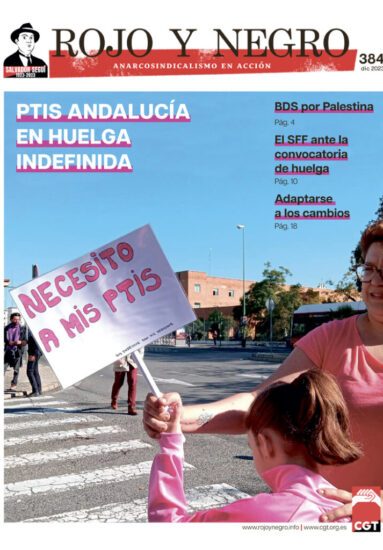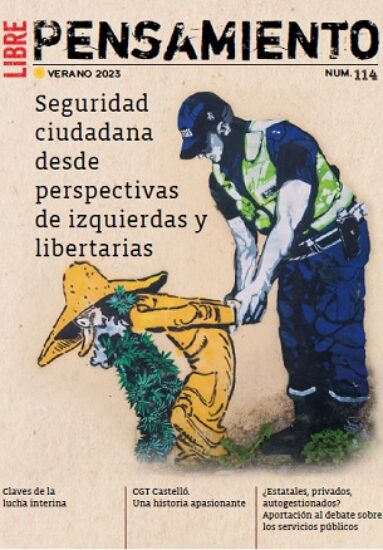La frase, “Si lo rompes, es tuyo” que Colin Powell aplicó a la aventura de Bush en Irak no encuadraba en ese entonces y continua siendo ahora algo completamente absurdo. Cierto que EEUU “rompió” ese Irak, pero nuestros ineptos dirigentes no sabrían lo que hacer con tantas piezas que ahora es ese país. Ni modo de pegarlas, poner todo como antes estaba. Y la Casa Blanca permanece hoy día aturdida, sin saber que hacer.
Una escalada bélica en este caso, como lo fue con Vietnam, no es sino una forma de prolongar el sufrimiento de inocentes mientras que de forma colateral contribuye a una mayor destrucción de un país que está en ruinas. Si el Pentágono requiere un test de comprobación para el Tte. General David Petraeus y su genio académico-militar, se les debe recordar del fracaso que tuvo hace cuatro décadas la estrategia del chico-genio y guerrero-teórico, Robert McNamara. Enterémonos de una vez para siempre que la victoria no se logra humillando a un pueblo, y dejemos que estas eminencias hagan su investigación post-doctoral en disciplinas que tengan valor humano, y no criminalidad.
Si se opta por un futuro para los iraquíes, una forma de ponerlos de nuevo en pie, los estadounidenses deben sacar sus tropas de Irak ya, de inmediato ; al mismo tiempo que se trata de convencer a los dos millones que viven en el exilio – muchos de ellos profesionales – que vuelvan a su país para aglutinar a ese huevo antropomórfico, Humpty Dumpty (Don Huevo Pelado), que EEUU les ha dejado.
Cuando decimos ya, de inmediato, nos referimos a una des-ocupación en Irak de todas las fuerzas estadounidenses en un periodo de seis a doce meses… sin bases militares en esa nación, y regalando la recién construida embajada en Bagdad (un “Escorial” con costo de casi mil millones de dólares) a los iraquíes como sede para su confederación – único sistema de gobierno bajo el que los 20+ millones de iraquíes podrían vivir, por lo menos por ahora, en paz.
Si EEUU quiere que eventualmente exista paz en esa región, y resarcir por su error monumental de invadir Irak, debe desplegar una mesa redonda donde sunitas, chiítas y kurdos se puedan sentar ; y donde también puedan ser invitados otros gobiernos concernidos por la situación actual, como los de la Liga Árabe, Turquía e Irán. Con todas las partes interesadas listas para obtener una paz justa, y una forma de labrar un futuro en común, EEUU debe de preceder las negociaciones postulando dos programas con referencia a sus tropas en Irak ; uno, en el que las tropas saldrían del país de forma metódica y calculada en un periodo de doce meses ; el otro, donde los estadounidenses saldrían rápidamente dejando el país en el presente estado de caos.
Durante el prólogo a las negociaciones entre los tres grupos principales que compiten por el poder en Irak, y los vecinos concernidos, EEUU esclarecería a todas las partes que está listo a otorgar indemnizaciones multimillonarias para la reconstrucción del país siempre y cuando las hostilidades cesen durante el año en que EEUU retira sus tropas. Si Irak se vuelca en una guerra civil, o sectaria, EEUU debe amonestar que la retirada de tropas estadounidenses no solo será rápida sino que además no habrá reparaciones de guerra ni en el presente ni en el futuro… ninguna.
Los estadounidenses, por lo general, no están predispuestos a aceptar culpa en asuntos relacionados con el extranjero o la política exterior, y no les cae bien eso de indemnización de guerra – “ayuda” es su palabra de preferencia. Vietnam quedó deshecho tras la larga guerra, y la palabra indemnización no fue tan siquiera un murmullo ni en la Casa Blanca de Nixon ni tampoco en el Departamento de Estado (Asuntos Exteriores). ¿Cómo es que alguien pueda pensar el que EEUU ofrezca indemnización a Irak ?
Veo tres validas razones por lo que esto debiera ocurrir. La primera, una expectativa de reparaciones proveería gran aliciente para paz y reconciliación de todos los grupos y facciones en esta contienda, particularmente si otras naciones en la región emparejan el sacrificio del pueblo norteamericano que pagaría por ello. La segunda, sería una decisión fiscalmente acertada para EEUU, dado que una continuación del conflicto costaría a los estadounidenses muchísimo mas en dólares y sangre. La tercera, y mas importante, sería la decisión ética y correcta. Si ; “lo rompimos, y debemos repararlo”, pero tal reparación solo debe ser llevada a cabo por aquellos que mejor saben como, los iraquíes. El mundo corporativo estadounidense debe echársele a un lado en esta reconstrucción ; y si hay norteamericanos que sienten necesidad moral en ayudar, deben hacerlo en algún tipo de organización civil voluntaria que se preste al caso.
¿Y a quien correspondería sentarse tras esta mesa ? Los líderes de los tres grupos, o sus representantes – pacifistas o insurgentes – por derecho propio, así como los embajadores especiales nombrados por aquellas naciones invitadas. Y si alguien se pregunta quien pudieran ser estos líderes, creo que tanto sunitas, chiítas como kurdos saben muy bien quienes estos son, sin necesidad de elección alguna para determinarlo. Somos nosotros en EEUU, heraldos de la democracia, los que siempre terminamos eligiendo entre políticos que a la hora de la verdad aparecen como personas egoístas e incapacitadas para obrar, particularmente aquellos que sentamos en los banquillos del Congreso, o que otorgamos derecho a vivir en la Casa Blanca.
En su desesperación, vendado por falta de sentido común o raciocinio, Bush continua en la búsqueda de esa victoria mítica en Irak, mientras que para los demás, incluyendo el pueblo estadounidense, el éxito se define simplemente como paz. No es el salvar cara lo que importa sino el exhibir una cara con humanidad. Y si la paz impera en Irak, sería fácil el que este hecho se duplicase en Afganistán y en la Tierra Santa… algo que pudiera muy bien ocurrir en los tres lugares simultáneamente, y sin demora. No existe razón alguna por lo que estas charlas no estén tomando lugar ahora, hoy. Excepto que personajillos con afán de protagonismo o intereses personales no quieran que esto suceda. Y, desafortunadamente, son estos personajillos quienes determinan nuestro destino… individuos que rehúsan reconocer sus errores, errores por los que el resto debemos pagar con creces más tarde o más temprano. Paguemos por este error en Irak cuanto antes, cuando aun podemos sufragarlo ; antes de que sea demasiado tarde, de lo contrario terminaremos sabiendo lo que verdaderamente es el terrorismo.
© 2007 Ben Tanosborn
www.tanosborn.com
Peace and reparations for a confederated Iraq
The phrase, “You brake it, you own it,” that Colin Powell applied to Bush’s adventure in Iraq was totally out of context then and seems completely absurd now. America broke it, it’s true, but our inept leaders wouldn’t know what to do with all the pieces that are now Iraq. Glue them back together ? Not in a hundred years ! And the White House is in a daze these days not having a clue as to what to do next.
Escalation of the war is in this case, just as it was with Vietnam, but a way to prolong suffering for innocent people while bringing additional collateral destruction to a nation already in ruins. If the Pentagon needs to test Lt. Gen. David Petraeus’ academic-military genius they need to be reminded of their failure four decades ago with the strategy of wonder-boy, warrior-theoretician, Robert McNamara. Wise up ! Let these bright people perform their postdoctoral research in endeavors that have human value and not criminal prowess.
If Iraqis are to have a future, put their lives back together again, America must exit now, while the two million Iraqis who have gone into exile – many of them professionals – are enticed to return to their land to help put back together the pieces of this humpty dumtpy that the United States is leaving for them.
By now, we mean an orderly de-occupation of all American forces in a period of six to twelve months… with no American bases left in that nation, gifting the recently built billion-dollar embassy in Baghdad as headquarters for a brand new Iraqi Confederation, for no other political arrangement would make sense now for those 20+ million people.
If America wants eventual peace in the region, and make amends for its colossal error of invading Iraq, it should set up immediately a round table where Sunni, Shiite and Kurds can sit ; and also invite as concerned guests – and not just observers – the Arab League, Turkey and Iran. And with all parties there ready to find equitable peace, and a way to draft a common future, America should preface any negotiations by presenting two timetables ; one, where troops would exit Iraq in an orderly fashion within a period of twelve months ; the other, where Americans would be expeditiously exiting the country.
During the prologue to the negotiations by the three major groups vying for their share of power in Iraq, America would make clear to all parties that it is ready to make billionaire-reparations for the reconstruction of the country if hostilities would cease, come to halt, during this year as American troops pull-out. If civil war ensues, all parties at the table would be admonished that the exit of American troops would not only be swift but that there would be no present or future reparations… none.
Most Americans are not predisposed to accept blame for anything related to world affairs or international politics, and have a definite aversion to the mere mention of war reparations – “aid” would be a more accommodating word to save face. Vietnam was left in shambles, and the word reparation was not even a murmur in either Nixon’s White House or the State Department. So why would the US pay reparations to Iraq ?
I can think of three valid reasons. First, the prospect of reparations (or aid) would provide great incentive for peace and reconciliation of all Iraqi sub-nations and warring factions, particularly if other nations in the region are willing to match this sacrifice by the American people footing the bill. Second, it would be a fiscally sound decision for America, since a continuation of the conflict in Iraq would end up costing Americans considerably more in both dollars and blood. Third, and most important, it would be the right and ethical thing to do. Yes, “we broke it, we must pay to have it fixed,” but only by those who best know how, the Iraqis. The American corporate world should be totally left out of the reconstruction effort ; and if American citizens felt a moral obligation to help, they should do so in some form of a civilian, peace reconstruction corps which would be specifically created for that purpose.
And just who would be sitting at that table ? The leaders of the three peoples, or their representatives – pacifists or insurgents – would claim their seats, as would the envoys of the guest nations. For those questioning as to who those leaders are, don’t lose any sleep over it. Sunnis, Shiites and Kurds know who their leaders are without the need of elections to so determine. It is us, Americans, the heralds of democracy, who end up electing our leadership among politicians who more often than not turn out to be self-serving duds, particularly those we choose to seat in Congress or to live in the White House.
In his desperation, blindfolded by a lack of common sense and reason, Bush continues searching for a mythical victory in Iraq, while success for everyone, including the great majority of people in America, could be defined simply as peace. It is not saving face that is important, but rather showing that ours is still a face showing humanity. And if peace rules the day for Iraq, it can also do the same for Afghanistan and for the Holy Land… something that could happen in all three places, simultaneously and without delay. There’s absolutely no reason for all these talks not to be taking place now, today, other than the prospect of little people with big egos not wanting it that way. But, to our misfortune, it’s these little people who determine our fate… individuals who refuse to acknowledge the mistakes they make, mistakes that the rest of us of necessity sooner or later must pay for. Let’s pay for the Iraq error now, while we can still afford it, before it’s too late ; otherwise, when it comes to terror… “We ain’t seen nothing yet.”
© 2007 Ben Tanosborn
www.tanosborn.com
Fuente: ben@tanosborn.com












